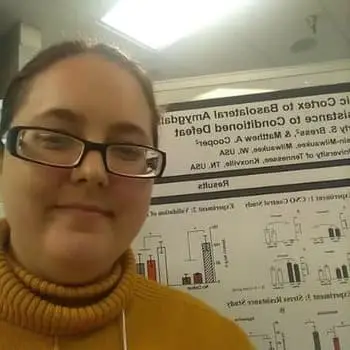LSD is a psychologically addictive substance, and use can be seen through many signs and symptoms. Learn more about the side effects that stem from LSD use.
The drug lysergic acid diethylamide, better known as LSD or acid, is a potent hallucinogen. When taken, it produces effects such as strong hallucinations, changes in sensory perception, derealization, and depersonalization.
For these reasons, LSD abuse occurs. Specifically, it is often misused by teenagers and young adults, especially in the “rave” or club scene. While the addiction potential for this drug is substantially lower than drugs such as opioids or benzodiazepines, people can become psychologically addicted to LSD. The signs and symptoms of LSD addiction are similar to other drugs of addiction.
Is LSD Addictive?
LSD is addictive, but not in the way that people normally think about addictive drugs. There is a difference in physical vs. psychological addiction. LSD is addictive psychologically but not physically. Although acid tolerance does rapidly develop, symptoms of dependence do not.
Treatment Can Be Life Changing. Reach out today.

LSD use can also cause drug-related dreams, which are a characteristic of addiction. For example, one woman who had been using LSD for around three years reported pleasantly dreaming about using the drug. Upon awakening, she was upset it had been a dream.
LSD Abuse Statistics
LSD abuse statistics are somewhat limited. However, in the Monitoring the Future Study from 2018 of 8th, 10th, and 12th Graders, the lifetime prevalence of LSD use was 1.4%, 2.8%, and 5.1%, respectively. Additionally, according to the 2018 National Survey on Drug Use and Health, adults aged 18 to 25 had a lifetime prevalence of 9.8%. Adults aged 26 or older had a lifetime prevalence of 11%.
How Is LSD Abused?
The LSD chemical is typically laid on a piece of blotter paper or placed into gel tabs. Sometimes, LSD is available in a liquid form or is dripped onto sugar cubes. These formulations are taken orally. However, it is also possible (but much less common) to inject LSD intravenously or even inhale the chemical.
Signs of LSD Addiction
LSD addiction symptoms can be similar to those of other drugs. Some of the signs and symptoms of LSD addiction or misuse include:
- Dilated pupils
- Decreased appetite
- Changes in sleep patterns
- Changes in behavior
- Impaired coordination
- Increased body temperature
- Poor judgment
- Anxiety or panic attacks
- Paranoia
- Difficulty concentrating
- Elevated mood Increased empathy
Side Effects of LSD Addiction
There are also many LSD side effects, both short-term and long-term. There are also risks of LSD use to keep in mind, including several important negative side effects.
Short-Term Effects of LSD
There are several short-term side effects of LSD on a person’s body and behavior. Some of these effects include:
- Hallucinations
- Derealization
- Depersonalization
- Changes in sensory perception
- Dilated pupils
- Increased empathy
- Paranoia
- Fear of dying
- Aggressive behaviors
- Rapidly changing emotional states
Long-Term Effects of LSD
There are also some long-term effects of LSD or acid use. These effects include:
- Anxiety
- Depression
- Fatigue
- Flashbacks
- Persistent paranoia or psychosis
Side Effects of Polysubstance Abuse
Perhaps where LSD is most dangerous is when it is put into the context of polysubstance abuse. In other words, people are more likely to use other drugs after taking LSD. LSD and weed can have negative effects when combined. Marijuana increases the effects of LSD and makes it more likely for a person to experience intense hallucinations, depersonalization, derealization, paranoia, and other effects.
LSD can also be combined with other drugs as well, such as alcohol, ecstasy (called “candy-flipping”) or psilocybin mushrooms (sometimes referred to as “hippy-flipping”).
Can You Overdose on LSD?
While the effects of LSD are not fatal, it is possible to overdose on the drug. An overdose is an excessive or dangerous dose of a drug, and an acid overdose can cause extreme side effects.
Signs of LSD Overdose
Acid overdose symptoms include the following:
- Panic attacks
- Paranoia
- Anxiety
- Persistent psychosis, depersonalization or derealization
- Suicidal ideation or behaviors
People should seek treatment for an LSD overdose from medical professionals at a hospital or substance use detox facility. Unfortunately, there is no medication that will immediately reverse the effects of LSD. However, medical professionals can help people calm down and place them in a secure environment where they won’t hurt themselves or anyone else.
LSD Withdrawal and Addiction Treatment
Because LSD is not physically addictive, there are no physical LSD withdrawal symptoms. However, people can experience psychological distress, such as anxiety, depression, and paranoia. An individual may also dream about LSD or have desires to consume the drug again.
Although some people are able to overcome these psychological symptoms on their own, LSD addiction treatment may be necessary. These people can go through LSD detox at a drug addiction treatment facility. Psychological symptoms can be just as destructive as physical withdrawal symptoms, and both can be treated more effectively through professional care.











